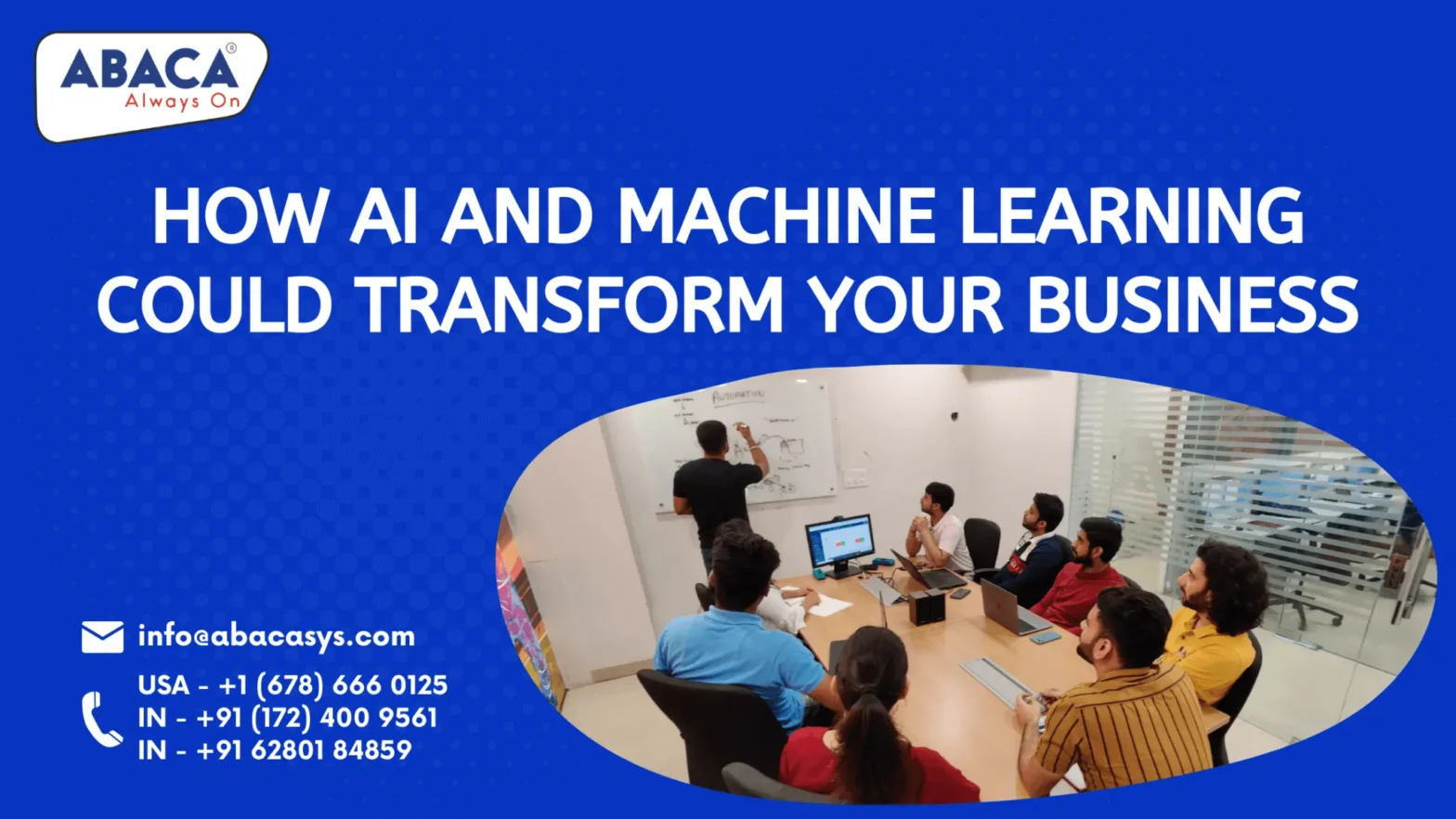How Artificial Intelligence and Machine Learning Could Transform your Business

Artificial intelligence and machine learning will always have an impact on businesses in one way or another. In addition to detecting fraud, increasing sales, automating work processes, enhancing customer experience, and providing predictive analysis, the ever-advancing technology is proving to be beneficial in every walk of the digital world.
There is no denying the fact that technology is evidently moving towards a workplace where people will soon work with machines. Artificial Intelligence (AI) combined with Machine Learning (ML) is sure to change the way we practice customer service and produce goods.
Even when we talk about speech recognition and voice detection, AI is not at all far in that niche as well. While changing human interaction and living all together, AI is quickly becoming an indispensable part of the business world. Not only that, the organizations are even turning towards it to solve long-standing issues within the industry.
Now, without further ado, let’s delve into the deeper details.
What Do You Mean By Machine Learning?
Combining key parts of Mathematics, statistics, and artificial intelligence, machine learning is an exciting new discipline that is taking the world by storm with each passing second. The main objective or premise behind artificial intelligence and machine learning is that engineers must be able to do more than write a program for carrying out a specific task.
They should be able to write an algorithm that can teach any machine how to write its program. And, the program thereby created should be intelligent in a manner that allows it to learn from past information and interactions.
Learning from past experiences and offering proactive solutions is what AI does best. Businesses are consistently using ML to use huge amounts of data.
How Machine Learning Will Affect Your Business?
There are a plethora of strategic reasons that motivate companies to include machine learning and artificial intelligence in their core processes. Be it a business’s growth, market position, or revenue, machine learning can increase every aspect.
And, neither you nor anyone can ever deny that AI and Machine Learning are significantly dependent on a huge amount of data. This fact is mostly the base of many predictions made around the world regarding how data analytics is going to shape AI & ML in the coming years.
Although robots haven’t yet replaced humans, there sure are signs of their arrival, both at work and at home.
Here are a few ways in which ML is helping businesses prosper:
1. Natural Learning
The development of a program that can actually understand natural language has been one of the most difficult problems the IT sector has encountered since its inception. The software has undoubtedly advanced throughout time; instead of the cumbersome search keywords of the past, users may now enter regular sentences into Google search.
However, computer programs still struggle to understand natural language, the kind of language people use on a daily basis. Artificial intelligence and machine learning are starting to change that.
AI-driven programs can learn from past interactions and mistakes. This means that applications such as search engines and voice assistants are beginning to understand normal human speech well enough to function securely. Equally important, these programs are improving their accuracy every day.
Voice-enabled personal assistants like Google Assistant and Nuance’s intelligent virtual assistants are helping executives and other professionals grow their businesses more efficiently. They do this in different ways.
First, Artificial Intelligence and Machine Learning powered personal assistants can perform many of the same tasks as administrative assistants. This includes scheduling appointments, adding events to your calendar, booking flights and hotels, and more. They also work 24 hours a day, 365 days a year.
Plus, these personal assistants help employees save time throughout the day. For example, until now, experts had to manually search for historical data and key information. Today, executives simply ask their assistants for information on sales and interest rates for a particular quarter.
2. Logistics
The logistics and retail industries are rapidly becoming experts in data analytics and machine learning. Because their success often goes hand in hand with making fun of the last cent of every article.
Machine learning helps companies increase efficiency and improve logistics at every stage of the shipping, warehousing, and sales process. The technology also enables future-oriented companies to integrate automated driving into their vehicles.
International shipping companies use machine learning to increase profits. These companies have installed thousands of components on freighters, long-haul trucks, and small equipment. This allows managers to identify failure patterns and create preventive maintenance schedules to keep vessels and trucks moving.
Trading companies such as Amazon are also leading in machine learning & Artificial Intelligence. An online retail giant is using machine learning to increase the efficiency of its delivery network and anticipate customer needs.
3. Manufacturing
Manufacturing is already beginning to integrate machine learning techniques into all stages of production.
That’s because AI-driven technology can help companies reduce costs by streamlining inventory management, streamlining production, and predicting equipment failure before it happens.
One of the advantages of manufacturing is the vast amount of data that is generated every day. Experienced companies like Seebo use Python developers to create cutting-edge data analysis software.
These programs use machine learning & Artificial Intelligence to predict annual production peaks and idle periods and suggest process improvements. It also creates cost-saving maintenance schedules that help businesses avoid unplanned shutdowns.
Conclusion
Businesses are using machine learning to boost sales and make plans. That’s one of the reasons businesses of all sizes have started working with Python web development companies to discover skilled data scientists and create software that fosters technological innovation.
In the manufacturing and logistics sectors, AI-driven software is already being utilized to improve productivity and raise revenues. Additionally, to promote sales and foster greater client loyalty, retail businesses are collaborating with Python programming services to create unique software.
If you have any queries or need any assistance, get in touch with us.
